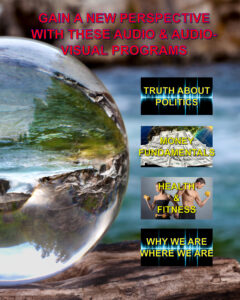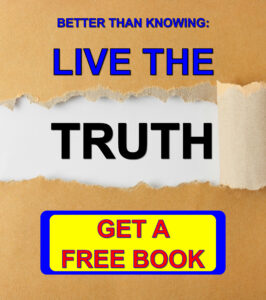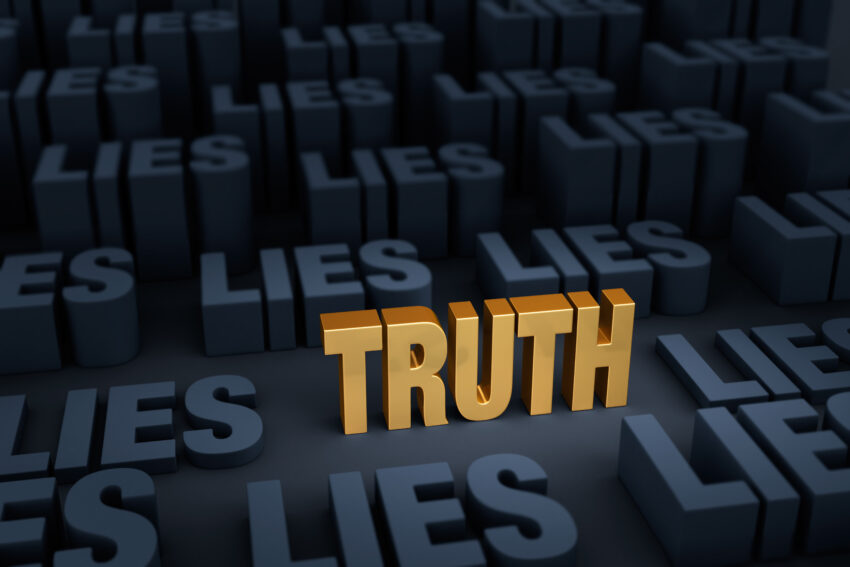Chapter 3 of “Are Americans Really this Stupid?” – Know the Truth. If you would prefer to listen to this content go to: The Truth About American Politics (thinkific.com)
I brought up, in the last chapter, the Darwinian notion of “survival of the fittest.” While this idea has immense implications for getting a handle on what the heck is going on, let us see if we can illuminate a truth.
I have a question for you:
What motivates you?
What moves you? What causes you to act?
You have likely heard of Abraham Maslow, the 20th Century American psychologist, best known for devising a human hierarchy of needs.
Base level needs in Maslow’s hierarchy are physiological or survival essentials like food, water, shelter and clothing.
The next level of needs are safety and security. We need food and water immediately, then we would like to have some hope of making it to our next meal.
After safety and security are social needs: belongingness and love. We are social beings. Youngsters cannot survive without older more experienced and capable people looking out for them. As humans mature, we seek to fit in and ultimately secure a place for ourselves amongst a group.
The fourth level in Maslow’s hierarchy of needs is esteem or status. Once we feel like we belong we ascend the pecking order gaining power.
The culminating level in Maslow’s hierarchy, the level above esteem and status, is what he termed self-actualization: realizing and achieving an individual’s purpose.
Needs are critical to survival, as Maslow determined. But we also have other motivators, what we label wants. Wants stem from the environment, opportunities, and personal and social tendencies and preferences.
Let us simplify.
Life, as is its nature, presents us with circumstances; you might say obstacles, hurdles or challenges. Some people, most people, well really all people at times, interpret circumstances as difficulties, and difficulties cause discomfort and pain.
As a matter of course we prefer pleasure to pain so we often avoid or move away from life’s challenges rather than deal with them. We tend to move toward what feels good – what we find pleasurable – and move away from what we find displeasing, uncomfortable or painful.
When we are hungry and thirsty, we feel discomfort. The solution to our discomfort is to eat and drink. Ridding ourselves of hunger is pleasing. We seek pleasure and avoid pain.
But life is more complicated than just feeding ourselves. Life holds much more potential.
Living can be reduced to one thing, one word. We live to feel.
Everything we do, we do to feel. No exceptions. Life, this experience of life is a feeling adventure. We explore and experience, learn and grow, create and contribute; and we feel through all of it. As we express life we feel.
And we constantly strive to feel better. We want to feel good.
The highest good is what Aristotle determined to be the purpose of life: to be happy. Happiness is the ultimate pleasure – the feeling we ultimately desire.
The feelings we feel come from one source: our minds.
Our minds manage energy. The energy we feel in our bodies is emotion. Interpreting external stimuli and thought our minds spark emotions – feelings.
Most of us assume the thoughts we think and the emotions we feel are products of our physical environment and circumstances. We tend to believe what we feel and how we feel are the result of what the world and others around us present. Whatever emotion we feel; whatever level of energy we sense in our bodies, good, bad or indifferent; is the result of something out there; is caused by something out there. When in reality, what we feel is always and only the result of our interpretation of what we perceive out there.
What motivates and moves us to act is the need or want or desire to feel.
Most of us however, refuse to believe we can manage what we feel through our thoughts.
Most people believe feelings are a product of external circumstances or the environment. Whatever is out there – obstacles, hurdles, challenges – cause us to feel whatever we feel in here. That just is not so.
Managing our feelings through thought is the only real power we have. And our power of thought is the only power we need.
Ninety-eight or ninety-nine percent of people deny responsibility for how they feel. Most people believe external conditions determine, cause or generate feelings. And since external conditions – obstacles, hurdles, challenges, difficulties – cause discomfort, the way to gain control over feelings is to gain control over external circumstances. Competing effectively is the solution we come to embrace.
This is a key factor in determining what the heck is going on.
Consider pleasure and pain as a continuum. On one end of the spectrum is pleasure, on the other is pain.
Life presents circumstances. We tend to move toward pleasure and away from pain.
But, as we know, life is not as simple as that.
When dealing with difficulties, most people, and I am serious here, most people do not believe they control how they feel. They believe external circumstances – those difficulties – cause them to feel good, bad or indifferent. This belief causes more problems. It is a distorted view of reality; a mistaken belief about how life works.
“Since external stuff make me feel – getting more control over external stuff will give me control over how I feel.”
Again, this is not how things work.
It’s not that the energy of circumstances does not affect us – it does. It is that we get ourselves into circumstances. And we choose what we focus on and how we interpret those circumstances. We have more power and control than most people ever realize. Our choices lead to our feelings.
We have control over our own minds to the degree we can overcome those negative impulses of instinct and emotion. While some believe the power of instinct and emotion are absolute, the reality is: We determine what we think, and in turn how we feel. Instinct and emotion have their place – to guide and assist – but allowing negative instinct and emotion to dominate undermines our ability to choose, which in turn keeps us from living full lives.
Your ability to think is your power.
Most people, really the vast majority, refuse to believe the truth. The truth is, your ability to think is your power, your means to affecting how you feel. Instead of accepting the truth, most people contend, to the bitter end, that it is external forces, and the instincts and emotions external forces illicit, which determine how they feel.
You are familiar with the adage: Know the truth and the truth will set you free.
The most powerful of human truths is you control how you feel. Only once you accept – know and believe – this truth will you actually be free.
You control how you feel.
In our first few chapters we determined:
Life is in motion. Change is the one constant.
Life moves in cycles.
We are on a feeling adventure. We live to feel.
Our interpretation of circumstances determines how we feel.
Instinct, emotion and thought all motivate people. However, while our ability to think is our greatest power, for most people instinct and emotion prevail.
Most of us refuse to believe we are in control of our lives and therefore most of us refuse to think. Most tend to believe whatever is out there determines how they feel. So, to gain control of how they feel, people seek to gain control of external circumstances.
Refusing to accept the truth that we determine how we feel, people bind themselves. They imprison themselves and yet still yearn to be free.
Next we delve deeper into personal power.
Look for Chapter 4: You’ve Got the Power on Thursday! Scott


